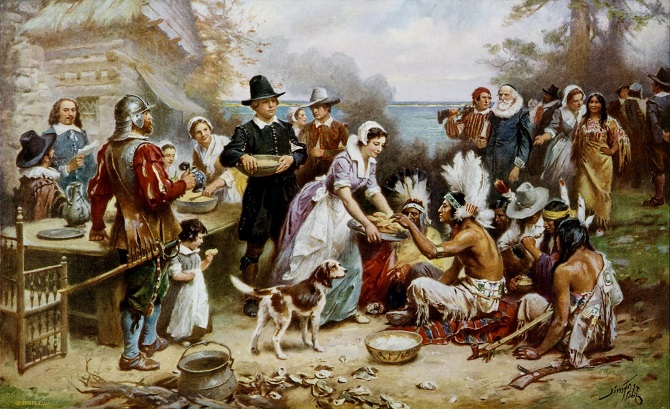Colonial Thanksgiving
The history behind the dinner table
Have you ever sat down to think about the true meaning of Thanksgiving? The last Thursday in November hasn’t always been associated with the holiday of Thanksgiving. Inspired by the pilgrims and Wampanoag indians who feasted on similar items in 1621, we engage in the same practice today. However, our knowledge may be a little flawed.
Thanksgiving is the celebration of giving thanks for everything we have and are grateful for. In 1620, the Mayflower left England, carrying a small number of passengers seeking freedom and opportunities in a new land. The crew settled in the Massachusetts Bay area where they set up colonies, and thus became known as pilgrims.
Suffering through the harsh winter, most of the crew died due to starvation and outbreak of diseases aboard the ship. Only about half of the crew survived and made it to the following season. Thankfully for the settlers, a Patuxet indian tribe member named Squanto taught the men how to cultivate and harvest food.
In November 1621, the first Thanksgiving was held when the pilgrims hosted a three day long feast, that celebrated the success of their first harvest. Gathered with their native american allies and the chief of the Wampanoag indians, the settlers enjoyed foods cooked using traditional native american spices.
Thanksgiving became an official holiday of the United States in the year 1863, during which our 16th president, Abraham Lincoln, dedicated a national day of, “Thanksgiving and Praise to our beneficent Father who dwelleth in the Heavens”. From then on, the national holiday was celebrated on the last Thursday in the month of November.
In summary, Thanksgiving has come a long ways over the years. From a small gathering of settlers and native americans, to a nationally celebrated holiday, Thanksgiving has grown along with the customs of its celebrants today.

Hi, my name is Katarina Faben, and this is my third year on the Outlook. I am a proud member of the editorial board and take pride in helping others reach...





